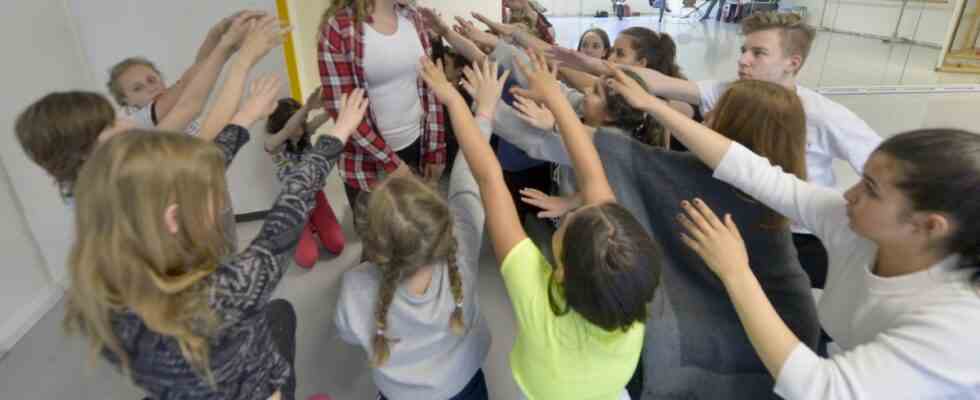Helen Lovejoy is neither one of the most famous nor one of the most likeable characters from the style-defining cartoon series “The Simpsons”. The gossip and fiercely conservative wife of Reverend Tim Lovejoy is best known to fans for a characteristic phrase she likes to articulate theatrically in moments of crisis: “Can’t someone think of the kids for at least once?!”
In the case of the youth stage Haar, there is no need to blame oneself in this regard. The association, which was founded shortly before the pandemic, has made it its mission to strengthen cultural activities for children and young people. “What we are pursuing: to support children’s and youth projects, to strengthen cultural education,” says Matthias Riedel-Rüppel, who, as head of the small theater in Haar, is one of those responsible. This includes, for example, giving young people access to the theater and the stage, offering creative workshops and building networks. The initial spark originally came from dance teacher Christine Miller, who also runs the dance and musical school “Dansation” in Haar.
During the past few years, which have been shaped by the pandemic, new ideas for cooperation models have emerged, for example through the move of Redmann’s Munich fairytale stage to the Small Theater Haar. Jochen Streicher, the artistic director of the children’s theater, will also be involved with the Haar youth stage. In addition, Alexandra Boschen and Yvonne Baum hold responsible positions. The “Jugendbühne” project is intended to be a forum for people who – be it educational or artistic – would like to venture into a cultural project with young people or children. In September there will be a workshop on the “Musical” area, and one on the “Theatre operation” area is also planned.
The inheritance of the Schneidenberger couple forms the basis
Starting this February, the Haar Youth Theater will also be awarding the Schneidberger Cultural Scholarship. It offers children and young people who live in the municipality the opportunity to apply for funding for their extracurricular cultural education. The name goes back to the Schneidberger couple, from whose inheritance the basis for this scholarship was laid. The heir Werner Mezger made this scholarship possible in memory of his mother and stepfather. He asked Mayor Andreas Bukowski (CSU) how the money could be used socially, and Bukowski brought the youth stage into play.
The cultural grant mentioned finances up to 60 percent of the tuition costs for children and young people in the field of creative training – whether acting, dance, music, art – and is aimed at three target groups: children whose parents cannot finance a beginner’s lesson; Children and young people whose educational opportunities are no longer guaranteed due to unexpected events in the family such as sudden unemployment, the loss of a parent or the separation of the parents; and finally there is a gifted scholarship for particularly talented young people who are to be supported if the additional expenses required for this cannot be borne by the families themselves. “I find it appealing that we can also do individual funding,” says Riedel-Rüppel. The youth stage “of course has no influence on the place of instruction, the content of the instruction or the like”. The application should also be as unbureaucratic and “low-threshold” as possible, as Riedel-Rüppel emphasizes.
For the further development of the youth stage, efforts are also being made to gain membership from institutions in order to expand the financial scope. Behind everything is the ideal claim to direct the passion and enthusiasm of children and young people to the inspiring area of culture, to bring them to the stage, so to speak, and to have them professionally accompanied by artistically or educationally active people. Maybe even Helen Lovejoy would have nothing more to complain about.
More information is available from https://jugendbuehnehaar.de.

